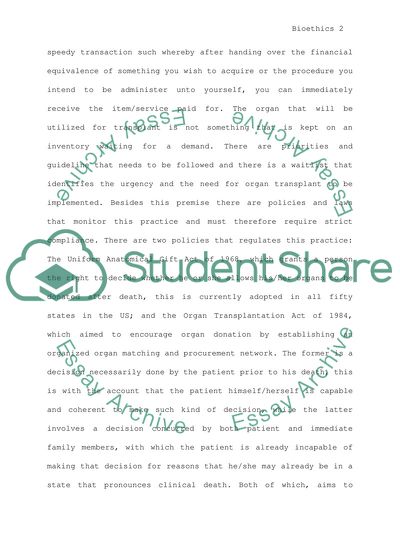Cite this document
(“Organ Transplant Essay Example | Topics and Well Written Essays - 2250 words”, n.d.)
Organ Transplant Essay Example | Topics and Well Written Essays - 2250 words. Retrieved from https://studentshare.org/medical-science/1504970-organ-transplant
Organ Transplant Essay Example | Topics and Well Written Essays - 2250 words. Retrieved from https://studentshare.org/medical-science/1504970-organ-transplant
(Organ Transplant Essay Example | Topics and Well Written Essays - 2250 Words)
Organ Transplant Essay Example | Topics and Well Written Essays - 2250 Words. https://studentshare.org/medical-science/1504970-organ-transplant.
Organ Transplant Essay Example | Topics and Well Written Essays - 2250 Words. https://studentshare.org/medical-science/1504970-organ-transplant.
“Organ Transplant Essay Example | Topics and Well Written Essays - 2250 Words”, n.d. https://studentshare.org/medical-science/1504970-organ-transplant.


